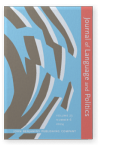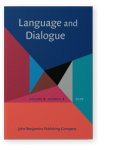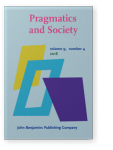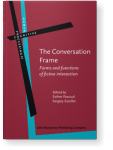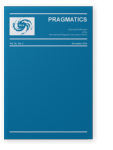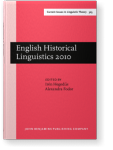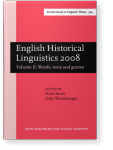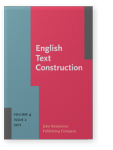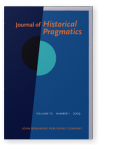Krisda Chaemsaithong
List of John Benjamins publications for which Krisda Chaemsaithong plays a role.
2024 Negotiating trust through COVID-19 press briefings: A multimodal analysis Journal of Language and Politics 23:6, pp. 920–943 | Article
Drawing from televised COVID-19 press briefings, this study explicates how the interplay between verbal and visual resources help policy makers restore public trust following organization-level failures by neutralizing unfavorable discourses that threaten the public’s perceptions of their… read more
2018 Dialogic features and interpersonal management in the early courtroom action game: The case of the opening statement Language and Dialogue 8:3, pp. 341–362 | Article
There are certain areas where present-day studies of language use can learn from history. Using a dialogue-analytic approach, this study investigates dialogic features and interpersonal management in the early English courtroom. Drawing upon a corpus of 81 opening statements from the Proceedings… read more
2018 Investigating audience orientation in courtroom communication: The case of the closing argument Pragmatics and Society 9:4, pp. 545–570 | Article
This study presents an empirical study of audience orientation, investigating lawyers’ overt interpersonal negotiation with jurors. Drawing upon a corpus of the closing arguments of five high-profile American trials, the quantitative and qualitative analysis identifies the traces and degree of… read more
2016 Persuading and arguing with the reader: Fictive interaction as discourse organizing device in witchcraft pamphlet prefaces (1566–1621) The Conversation Frame: Forms and functions of fictive interaction, Pascual, Esther and Sergeiy Sandler (eds.), pp. 113–130 | Article
Integrating Goffman’s concept of footing (1981), this chapter examines textually monologic – but conceptually dialogic – prefatory materials of Early Modern English witchcraft pamphlets (1566 to 1621) and explicates how pamphleteers consistently invoke and inhabit different speaking roles to set up… read more
2014 Dramatic monologues: The grammaticalization of speaking roles in courtroom opening statements Pragmatics 24:4, pp. 757–783 | Article
This investigation examines different speaking roles that lawyers may shift into, and depart from, in the monologic genre of the opening statement in three American trials, incorporating Goffman’s concept of Footing (1981) into an analysis of three high-profile trials. The findings reveal that… read more
2012 Beyond questions and answers: Strategic use of multiple identities in the historical courtroom English Historical Linguistics 2010: Selected Papers from the Sixteenth International Conference on English Historical Linguistics (ICEHL 16), Pécs, 23-27 August 2010, Hegedűs, Irén and Alexandra Fodor (eds.), pp. 349–368 | Article
Exploring the discursive process of identity construction and ascription, the study reveals the ways in which a set of identities emerged in and through the dynamic interaction between the lawyers and the witness of a homosexual rape trial in 18th century London. Grounded in Goffman’s notion of… read more
2012 “It is with a trembling hand I beg to intrude this letter”: Politeness in the pauper letters of 18th century England English Historical Linguistics 2008: Selected papers from the fifteenth International Conference on English Historical Linguistics (ICEHL 15), Munich, 24-30 August 2008, Sauer, Hans and Gaby Waxenberger (eds.), pp. 237–254 | Article
This paper investigates the use of politeness in various parts of the pauper letters of the 18th century. While grounded in Brown & Levinson’s framework (1987), the paper argues that the writers had much more discursive leeway in choosing politeness strategies to achieve their communicative goals… read more
2011 Discursive control and persuasion in early modern news discourse: The case of English witchcraft pamphlets and their prefaces (1579–1621) English Text Construction 4:2, pp. 228–256 | Article
As an early form of news discourse, witchcraft pamphlets were one of the primary sites in which and through which ideologies about witchcraft and witches were articulated and disseminated in Early Modern England. Recognizing the pivotal position of language in constructing and perpetuating… read more
2009 Re-visiting Salem: Self-face and self-politeness in the Salem witchcraft trials Journal of Historical Pragmatics 10:1, pp. 56–83 | Article
This paper invites the reader to revisit the accused individuals’ response strategies in the Salem witchcraft trials from the perspective of pragmatic politeness. However, politeness, as used in this paper, refers to politeness to self, for the sake of one’s face — a concept that is different from,… read more
